Tour de France: Nibali shows he is ready to take on Froome and Contador
New Italian champion ready to fight for yellow
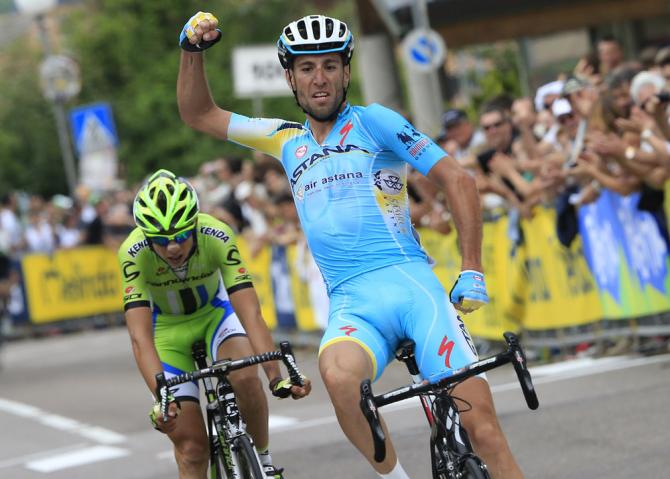
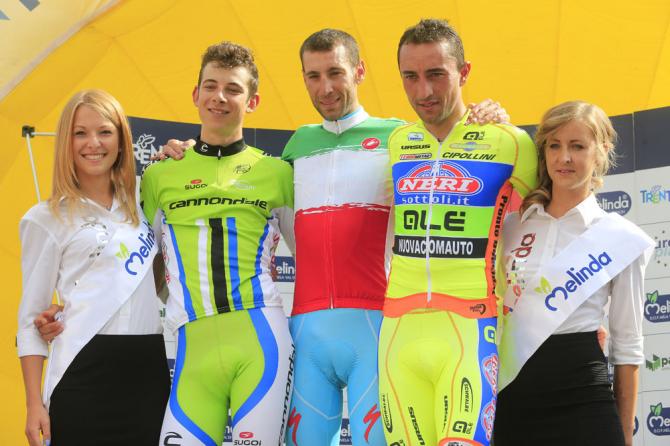
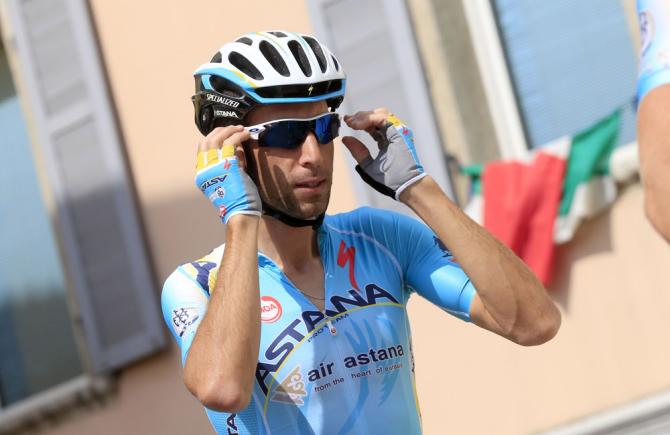
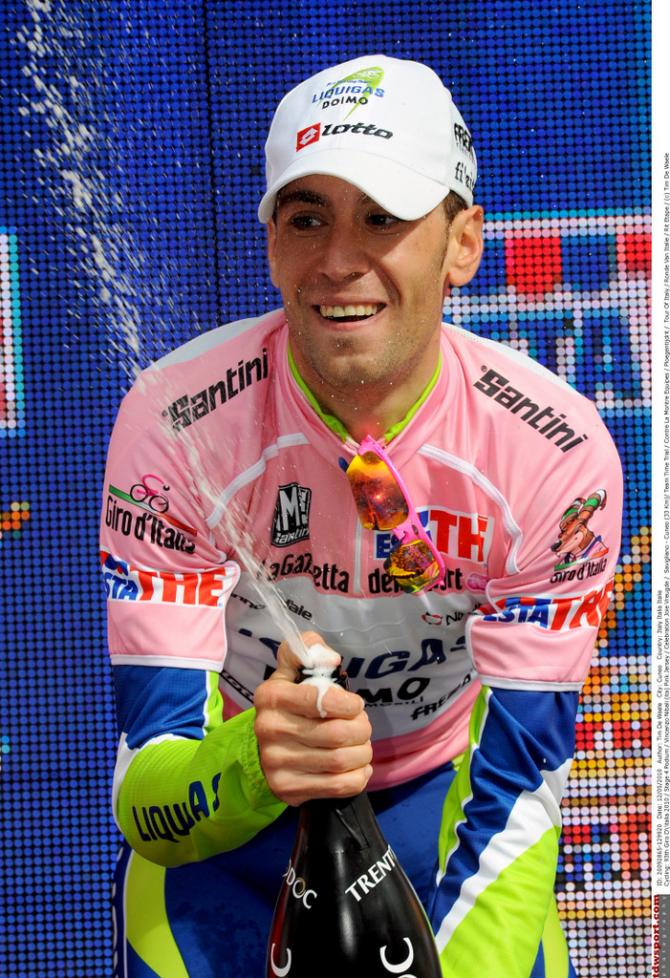
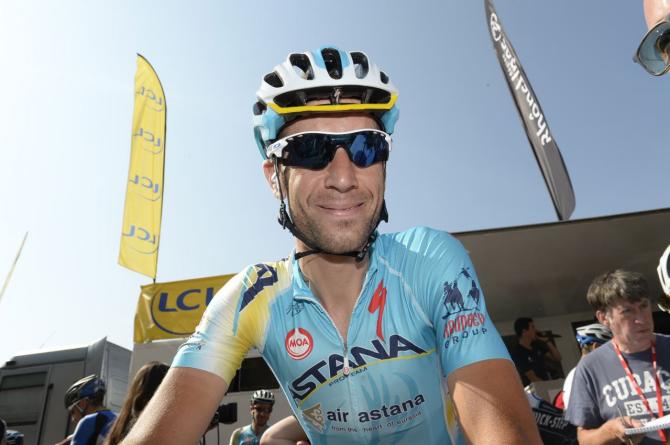
Vincenzo Nibali showed that he is on form and ready for the Tour de France after an emotional and emphatic victory at the Italian national road race championships on Saturday. Victory could not have come at a better time for the Sicilian, and it indicated that the Astana team leader is finally on form just in time for July.
Nibali had not won a race since last year's Giro d'Italia, and the tears of joy as he celebrated with his wife and four-month-old daughter were a clear sign of relief and satisfaction. Nibali needed a win to show that he could be a true podium contender at the Tour de France and perhaps even challenge Chris Froome (Team Sky) and Alberto Contador (Tinkoff-Saxo) for the yellow jersey.
He will race in the iconic red, white and green 'tricolore' jersey for the first time in Yorkshire on stage 1 of the grand depart at the Tour de France and hopes to emulate Gianni Bugno, who was the last 'tricolore' finisher on the Tour podium back in 1991, when he was second to Miguel Indurain.
Nicknamed the 'Squalo dello Stretto' – the Shark of the (Messina) Strait, for the way he often attacks races, Nibali will carry the weight of two nations on his shoulders at the Tour de France: that of Italy and its tifosi and also Kazakhstan, the backers of his Astana team. Both expect him to challenge for the yellow jersey after a disappointing season and Nibali admitted he could feel the pressure before pulling on the national champion's jersey.
"I've won the Giro d'Italia and Vuelta a España but when your last win is almost a year ago, at the Tre Cime di Lavaredo at the Giro, it makes you edgy and can affect your confidence," he said after his victory in Male, amongst the apple orchards that host the annual Trofeo Melinda race.
"I'd marked the day of the race in red on my race calendar because I knew it was a great chance to win again. Fortunately, everything went as we'd planned and as we'd hoped. When I won it, it was a huge liberation of emotions. Winning this jersey was special, everyone knows that and I'll be proud to wear it at the Tour de France and for a year."
Gradual progression and growing maturity
Get The Leadout Newsletter
The latest race content, interviews, features, reviews and expert buying guides, direct to your inbox!
Nibali is spending his final days before the Tour de France at home with his young family in Lugano, Switzerland. After dominating the 2013 Giro d'Italia, he has built his 2014 season around the Tour. This will be his fourth Grand Boucle and his 12th Grand Tour of his 12-year professional career despite still only being 29 years old. He grew up in Messina watching Miguel Indurain and then Marco Pantani win the Giro d'Italia and Tour de France before beginning his own career as a talented Junior in Tuscany.
He left home at 16 and went on to become the best Italian stage racer of his generation. His professional career has been of gradual progression and growing maturity. "I’ve been getting there little-by-little and by constantly growing and improving," he told Cyclingnews in an exclusive interview.
"I remember 2008, my first-ever Tour de France, when finished 19th. I can remember wearing the white jersey for a few days but most of all, I can remember being exhausted afterwards."
Nibali became a father in February and a series of other distractions seriously affected his winter training. He was forced to race on the defensive for most of the season, often making showboating attacks to mask his lack of form.
He was only 12th at the Tour of Oman, 21st at Paris-Nice and fifth at the Tour de Romandie. He was also caught lacking at the more recent Critérium du Dauphiné but had closed the gap on Froome and Contador. He was convinced that a recent block of high-end, high-intensity work in the Italian Dolomites would give him the form to challenge at the Tour de France and give him peak form in the decisive mountain stages.
He is reportedly a kilogram lighter than when he won the 2013 Giro d'Italia and does not seem weighed down by the polemics of a letter from Astana team manager Alexandre Vinokourov. "I've always tried to honour every race I've done from the start to the end of every season, ever since I turned professional," Nibali argued.
"The letter was only an extra bit of motivation we all received, even the mechanics and staff, to push us to train harder and work better, especially for WorldTour races, where we've got to score points to stay up in the rankings. Froome and Contador showed they were stronger than me at the Dauphiné but that wasn't the moment to be at your very best. I know how I've worked and what I've done, and I'm confident I can be good enough.
"Winning the Italian title gives me faith in my form. I'm going to the Tour to fight for victory. Of course it's going to be a real fight, perhaps more than in recent years because there's Froome and Contador but also the likes of [Alejandro] Valverde and even world champion Rui Costa.
"The Tour is won day after day. You can't get anything wrong and it all depends on your legs, your heart, your team, and the bit of luck you have to hope and look for. I'll be aiming for the maximum possible. To win. That's the goal at the start in Leeds but the Tour is only decided in Paris, after three crazy weeks."
Winning a major mountain stage
Nibali has studied the route of this year's Tour de France without becoming obsessed about riding every mountain and key part of the race. He has ridden the stage 5 pavé to Arenberg and already knows many of the mountains that stand out along the race route. Some have been circled in red as possible stage victories.
"The Giro d'Italia is a very different race to the Tour de France. The Giro has got those 10 to 12-kilometre climbs, which are very steep, like the Zoncolan, while the Tour hasn’t got anything like that. On the other hand the Tour has got long, gradual climbs like the Bonette-Restefond, the Tourmalet, the Izoard and the Lautaret," he explains, revealing he would love to win on any of them.
"Hautacam (stage 18) and the day to Planche des Belles Filles (stage 10) are spectacular visually and historically important in cycling and they’re the ones that appeal to me the most. The finish to Planche des Belles Filles isn't as easy finish compared to two years ago when Froome won, only the finish is the same. There are some tough climbs before that too. That will be an important first test for all of us."
Everyone is beatable
Nibali knows the 54km stage 20 time trial from Bergerac to Périgeux will also be important and a day he could lose time to Froome and Contador, and possibly the Tour de France. Yet he predicts that the lack of time trials until the penultimate stage plays in his favour, makes this year's race more unpredictable and allows him to use his natural, aggressive style of racing to gain time on his rivals.
Nibali is soft-spoken and reserved but he's convinced Froome is beatable. "Every rider is beatable, but some are more beatable than others," he said.
"I can remember Froome in 2008, he was much fatter then ... and was beatable. I think he needed a team that really knew how to exploit his potential. That was good for him because he hasn’t been burned out too young. Whoever was lucky enough to find him, found a rider with a good engine and they’ve worked really well with him."
Nibali believes that Team Sky’s weakness is that they become disturbed and divided by surprise attacks, the same surprise attacks during difficult situations that the Italian champion is so well known for inflicting on the peloton.
"If you’ve got a strong leader like Froome and a really strong team, it’s very difficult, and the Tour traditionally doesn’t lend itself to surprise attacks as much as other races like the Giro or the Vuelta. However, this year's Tour could be different and let’s not forget 2013 and the way Tinkoff-Saxo attacked,” Nibali said with regard to Tinkoff-Saxo’s audacious attack on Froome during stage 13 through hot crosswinds that forced him to lose over a minute in the overall classification that day.
"It’s the unpredictable factors that can sometimes change things in a big way and that could be the way to beat Froome," he said. "Having just one time trial at the end of a Tour makes it less of a factor. It all comes down to your physical condition, what you have left and I hope to be strong right to the end of the Tour."

Stephen is one of the most experienced member of the Cyclingnews team, having reported on professional cycling since 1994. He has been Head of News at Cyclingnews since 2022, before which he held the position of European editor since 2012 and previously worked for Reuters, Shift Active Media, and CyclingWeekly, among other publications.